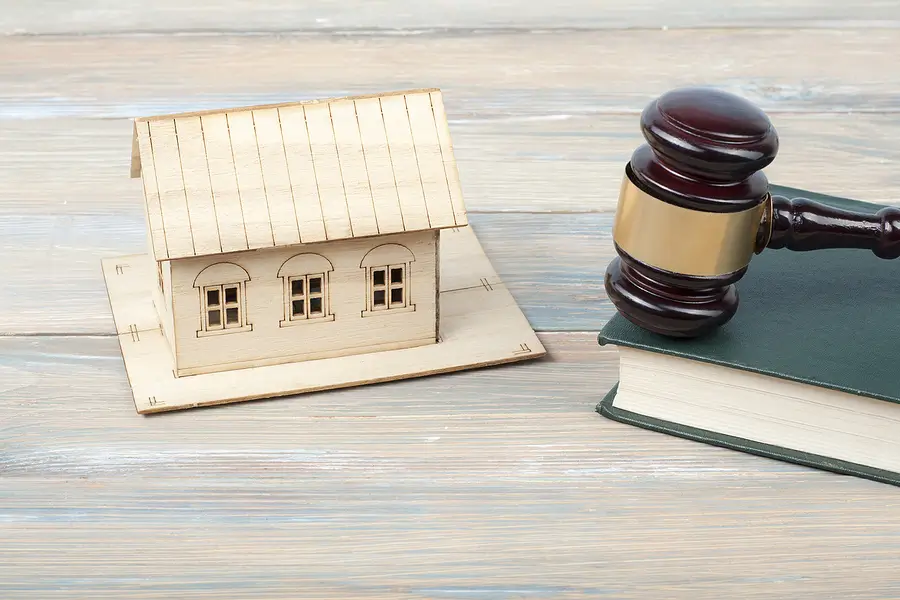If you own property or invest in real estate in Virginia, it's essential to understand the laws regarding squatters and how to protect your rental property. Squatters can occupy your private property without permission, sometimes claiming legal ownership under Virginia’s adverse possession law.
This information is meant to help you understand the laws around squatters' rights[1], adverse possession claims, and how to protect your investment. It's essential to understand your rights and responsibilities as a landlord, whether you've been one for a while or have just purchased your first property. It's also important to know how to deal with unlawful occupancy.
Let’s walk through the key points you need to know about Virginia squatter laws and how to prevent squatters from gaining legal ownership of your property.
Key Takeaways:
- Virginia law allows squatters to claim ownership of property through adverse possession if specific conditions, including continuous possession for 15 years, are met.
- Property owners must regularly inspect and maintain their properties to prevent unauthorized occupancy and protect ownership rights.
- Navigating the judicial eviction process and seeking professional legal advice are vital steps in effectively removing squatters and enforcing your property rights.
Understanding Adverse Possession in Virginia
Virginia's adverse possession law is a legal doctrine that allows a squatter to gain ownership of land if they meet specific adverse possession requirements over a period of 15 years. This means that a squatter who occupies your property openly and notoriously, without your permission, and fulfills conditions such as paying property taxes and making property improvements could claim legal ownership.
To claim adverse possession, the squatter must demonstrate several factors:
- Actual possession: The individual physically occupies the property.
- Open and notorious possession: Their occupation is visible and evident to the public.
- Exclusive possession: They possess the property without sharing it with others, including the rightful property owner.
- Hostile possession: They occupy the property without the owner’s permission and with the intent to claim ownership.
- Continuous possession: They maintain occupation for an uninterrupted period of 15 years, as defined under Virginia law.
This is a high bar to meet, but as a property owner, you must understand how adverse possession works to prevent squatters from making a valid legal claim.
The Reality of Squatters’ Rights in Virginia
A lot of landlords and property owners don't know squatters' rights. In Virginia, squatters can't just take over your property whenever they want. Squatters' rights are limited and only applicable in very specific legal situations. Squatters must complete the standards for adverse possession that were listed above in order to claim ownership of a property or gain legal ownership of it.
If a squatter occupies a vacant property or an unoccupied property without paying rent or property taxes, they generally do not have legal rights to stay. However, the longer they remain and fulfill the requirements, especially paying property taxes and making property improvements, the stronger their legal claim becomes.
How Squatters Claim Legal Ownership
It's not as easy as just living on the land to claim ownership through adverse possession. Squatters must say that they own the land exclusively, which means that they don't let the property owner or anybody else use it. They must also openly possess the property notoriously, which means that people know or should know that they are there, and they must do this throughout the entire 15-year period.
Also, the squatter should pay property taxes on the land and ideally make property improvements, showing a good-faith effort to maintain and claim the land. These legal documents and proof are essential for successfully claiming adverse possession under Virginia law.
Protecting Your Property: Prevention and Action
The best defense against squatters is prevention. Property neglect and lack of regular inspection can make your rental property or vacant land an attractive target for unauthorized occupancy. Here are some proactive steps property owners should take:
- Regularly inspect your properties, especially vacant or unoccupied property.
- Secure your property with locks, fencing, or security systems to deter unauthorized entry.
- Address maintenance and repair issues promptly to prevent squatters from claiming property neglect.
- Clearly communicate and document all rental agreements and evict holdover tenants on time with an eviction notice.
- If squatters are found, act promptly to initiate the judicial eviction process through local law enforcement and legal channels.
Removing Squatters: Understanding the Legal Process
Removing squatters in Virginia requires following the judicial eviction process. Simply calling the police is not enough, as unauthorized occupancy is not always treated as a criminal offense. Property owners must:
- Serve the squatter a written notice of eviction.
- File a formal eviction complaint with the local court.
- Attend the eviction hearing or have a knowledgeable real estate attorney represent you.
- Obtain a court order to evict squatters legally and effectively.
- Use local law enforcement, typically the sheriff, to remove squatters after the eviction process is complete.
Following this legal route ensures that you respect the squatter’s legal rights while protecting your ownership rights and avoiding unnecessary legal complications.
Balancing the Challenges and Benefits of Adverse Possession Laws
Virginia’s adverse possession laws are designed to strike a balance between the interests of property owners and occupants. While adverse possession helps resolve disputes where land lies unused for long periods, it can present challenges for landlords who face the risk of losing ownership due to unauthorized occupancy.
On the other hand, these laws encourage property owners to be vigilant about their properties, maintaining and inspecting their land regularly. This vigilance not only prevents squatters but also preserves property value and community safety.
Why You Should Seek Professional Legal Advice
Navigating Virginia squatter laws and adverse possession claims can be complex. If you suspect squatters on your property or receive an adverse possession claim, consulting a qualified attorney is crucial. A knowledgeable real estate attorney can:
- Help you understand the legal rights and obligations of both parties.
- Guide you through the eviction process and local court procedures.
- Assist in gathering evidence to prove that adverse possession is invalid.
- Advise on preventing future squatter claims and protecting your investment.
Protect Your Property with Expert Help
As a property owner in Virginia, protecting your property ownership and preventing squatters from gaining legal ownership is a priority. By understanding Virginia's adverse possession law, regularly inspecting your property, and taking swift legal action when necessary, you can safeguard your rental property and investments.
If you want peace of mind and professional support, partnering with a trusted property management company can make all the difference. At Relevate Property Guides, we specialize in helping landlords and real estate investors protect their properties from squatters and property neglect.
Explore our Services or contact us directly through our Contact Us page to learn how we can help you maintain control over your properties and ensure your investments thrive.
Frequently Asked Questions (FAQs)
Q1: How long does a squatter need to stay on a property in Virginia to claim adverse possession?
A: Under Virginia law, a squatter must have continuous possession of the property for at least 15 years to bring a legitimate adverse possession claim.
Q2: Can squatters become legal owners if they don't pay their property taxes?
A: In Virginia, paying property taxes makes a squatter's claim for adverse possession stronger, but not paying them might make their claim weaker or even void.
Q3: What should a property owner do if they find squatters on their land?
A: The property owner should quickly issue an eviction notice and start the legal process of evicting the tenant. It would be best if they did this with the help of a knowledgeable real estate lawyer.
Q4: Is it against the law in Virginia to live in a place without permission?
A: Unauthorized occupancy is not normally seen as a crime, but as a civil concern that is handled through the eviction process.
Q5: How can landlords stop squatters from taking over?
A: Check on properties often, keep vacant land safe, keep the property in good condition, deal with unauthorized occupancy right away, and get legal help when you need it.






